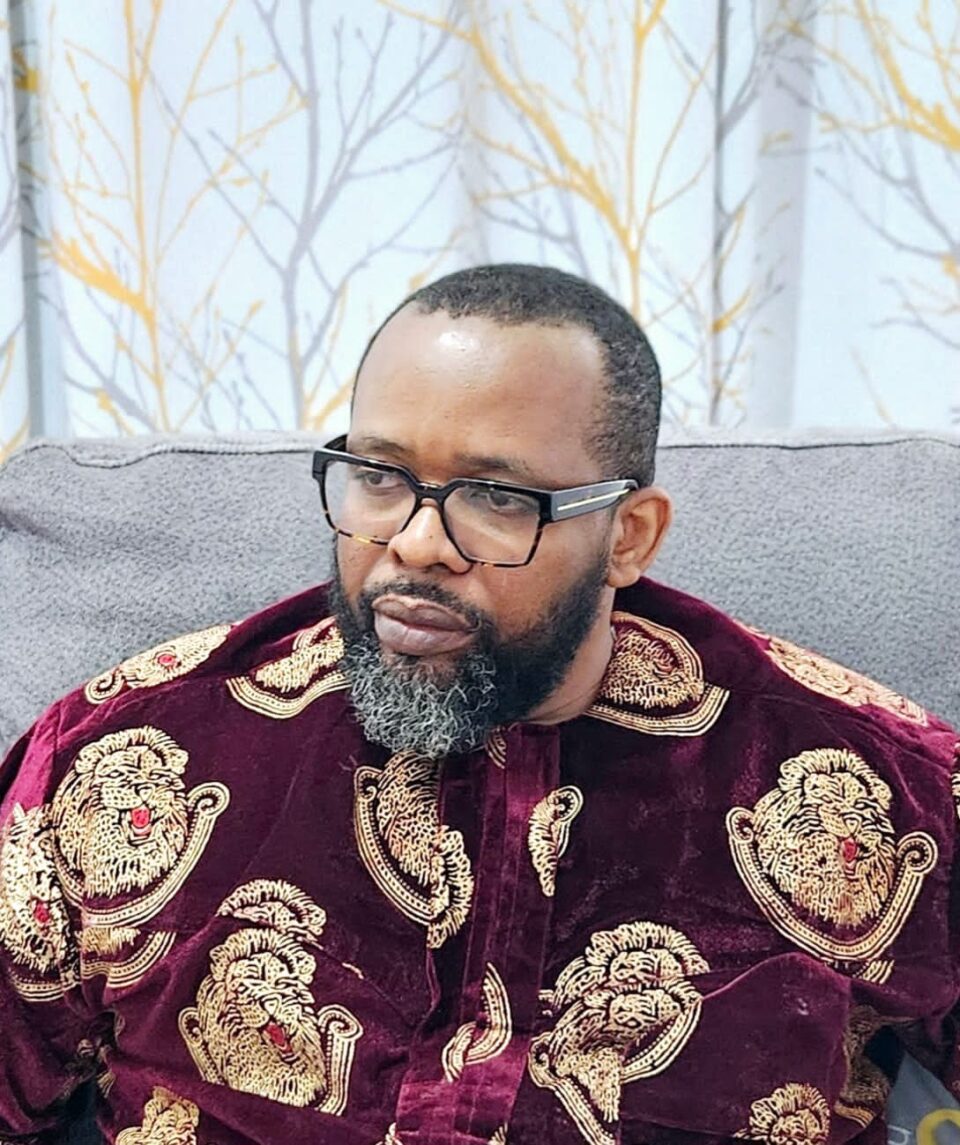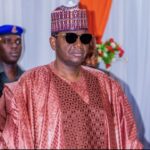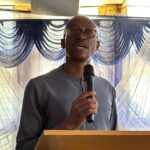The 2014 National Conference was convened by the Nigerian government as a critical attempt to address the underlying structural imbalances and long-standing grievances that have plagued Nigeria’s federal system. It was intended to create a platform for dialogue among representatives from all regions, including the South-East, and to devise solutions that would promote unity, fairness, and equitable representation across the country. However, the failure to implement the recommendations of this conference, particularly those related to addressing the political and structural marginalisation of the South-East region (Igbo-Biafra), underscores the Nigerian state’s unwillingness or inability to address these imbalances. The refusal to act on these recommendations has had far-reaching implications for the South-East, further entrenching inequality and reinforcing the justification for remedial secession.
The 2014 National Conference: An Opportunity for Reform
The 2014 National Conference was seen by many as a critical opportunity to resolve the deep-seated issues that have plagued Nigeria since its independence in 1960. These issues include ethnic divisions, resource control, political representation, and regional autonomy. The South-East, which had long suffered from political underrepresentation, economic marginalisation, and systemic discrimination, viewed the conference as a chance to address these inequities. Among the primary concerns raised by the South-East delegation were the unequal allocation of states, underrepresentation in federal institutions, and the need for a more equitable distribution of federal resources.
One of the most significant issues the South-East delegation raised at the conference was the imbalance in state creation. The South-East region, with only five states, has fewer states than the other geopolitical zones, which have six or more. This discrepancy has serious implications for political representation, as states form the basis for allocating seats in both the Senate and the House of Representatives, as well as for the distribution of federal resources. The fewer states in the South-East mean that the region has less political clout in the National Assembly, which in turn reduces its influence in national policymaking and limits its ability to advocate for its interests.
At the 2014 conference, the South-East delegation strongly advocated for the creation of an additional state in the region to bring it on par with other geopolitical zones. This would not only correct the historical imbalance in state creation but would also ensure that the South-East had equal representation in the federal legislature and a fairer share of federal resources. Additionally, the South-East called for reforms to Nigeria’s federal structure, including greater regional autonomy and the decentralisation of power, which would allow regions to have more control over their own affairs, particularly in areas such as resource control and economic development.
The Nigerian Government’s Failure to Implement the Conference’s Recommendations
Despite the robust discussions and detailed recommendations that emerged from the 2014 National Conference, the Nigerian government has largely ignored these proposals. This failure to act on the recommendations of the conference, particularly those related to the South-East’s grievances, has reinforced the perception that the Nigerian state is either unwilling or unable to address the structural imbalances that have marginalised the region for decades.
The refusal to create an additional state in the South-East, despite the clear evidence of underrepresentation, is a glaring example of the Nigerian government’s disregard for the region’s legitimate concerns. By maintaining the status quo, the government has perpetuated the political and economic marginalisation of the South-East, ensuring that the region remains underrepresented in the National Assembly and continues to receive a disproportionately small share of federal resources. This failure to address the structural imbalances identified at the 2014 National Conference not only undermines the legitimacy of Nigeria’s federal system but also violates the principles of equality and fairness that are supposed to underpin the country’s governance.
Furthermore, the government’s refusal to decentralise power and grant greater autonomy to Nigeria’s regions has stifled the South-East’s ability to pursue its own development agenda. The centralisation of power in Abuja has meant that decisions about resource allocation, infrastructure development, and economic policy are made at the federal level, often to the detriment of the South-East. The region’s inability to control its own resources or make decisions about its own development has left it economically disadvantaged, further deepening the sense of marginalisation and alienation among the Igbo people.
The Implications of the Government’s Inaction
The Nigerian government’s failure to implement the recommendations of the 2014 National Conference has far-reaching implications for the South-East region and for Nigeria as a whole. By refusing to address the structural imbalances that were highlighted at the conference, the government has effectively signalled that it is not committed to ensuring equal rights and representation for all of Nigeria’s regions. This lack of commitment undermines the legitimacy of the Nigerian state and calls into question its ability to govern in a fair and equitable manner.
For the South-East, the government’s inaction has reinforced the belief that internal political remedies have been exhausted. The region has participated in national elections, engaged in political dialogue, and put forward its grievances through legitimate channels, such as the 2014 National Conference, yet these efforts have yielded little to no results. The refusal to implement the conference’s recommendations has led many in the South-East to conclude that the Nigerian state is structurally incapable of addressing their grievances and that secession may be the only viable solution.
The South-East’s involvement in the 2014 National Conference, and the subsequent disregard of the conference’s outcomes, highlight a broader pattern of institutional neglect and political exclusion. This pattern of exclusion has been a consistent feature of Nigeria’s governance since independence, and it has left the South-East feeling alienated from the rest of the country. The region’s underrepresentation in the federal legislature, its exclusion from key political and economic decision-making processes, and the continued centralisation of power in Abuja have all contributed to a growing sense of frustration and disillusionment among the Igbo people.
The Argument for Remedial Secession
Under international law, when a state fails to protect the rights of a particular group or region, and when that group has exhausted all available domestic remedies, secession may be considered a legitimate response. The principle of remedial secession, which has been recognised in international legal decisions such as the International Court of Justice’s advisory opinion on Kosovo and the African Commission on Human and Peoples’ Rights’ ruling in the case of Katanga vs. Zaire, allows for secession as a last resort in cases of extreme oppression, discrimination, or exclusion.
In the case of the South-East region (Igbo-Biafra), the failure of the Nigerian state to implement the recommendations of the 2014 National Conference, despite the region’s active participation in the process, provides a strong justification for pursuing remedial secession. The South-East has engaged with the Nigerian political system in good faith, but the government’s refusal to address the region’s legitimate concerns has left the Igbo people with no choice but to consider alternative paths to self-determination.
The Nigerian government’s refusal to act on the outcomes of the 2014 National Conference not only perpetuates the structural imbalances that have long marginalised the South-East, but it also undermines the legitimacy of Nigeria’s claim to territorial integrity. A state’s territorial integrity is contingent upon its ability to provide equal rights and representation to all of its citizens. When a state fails in this regard, and when a particular group or region is systematically excluded from political and economic power, the argument for secession becomes increasingly compelling.
Conclusion: The Necessity of Secession as a Last Resort
The South-East region’s participation in the 2014 National Conference was a genuine attempt to engage with the Nigerian political system and to seek redress for the region’s long-standing grievances. However, the government’s failure to implement the recommendations of the conference, particularly those related to state creation, regional autonomy, and resource control, has left the South-East with little choice but to pursue alternative paths to self-governance.
The failure to address the structural imbalances that continue to marginalise the South-East has reinforced the region’s sense of alienation and exclusion from the Nigerian state. By refusing to act on the outcomes of the 2014 National Conference, the Nigerian government has effectively signalled that internal political remedies have been exhausted. As a result, the South-East’s pursuit of remedial secession is not only justified but necessary as a last resort to protect the rights and interests of the Igbo people.
Under international law, secession is considered a legitimate response to extreme discrimination and exclusion when all other avenues for redress have been exhausted. In the case of the South-East, the government’s unwillingness to address the region’s grievances, despite the recommendations of the 2014 National Conference, provides a strong legal and moral basis for the pursuit of remedial secession. The South-East’s demand for self-determination is not only a response to the failures of the Nigerian state but also a necessary step towards achieving political representation, equality, and justice for the Igbo people.
Uche Mefor is the Convenor of the Igbo-Biafra Nationalists and the Indigenous People of Igbo Nation for Self-determination



